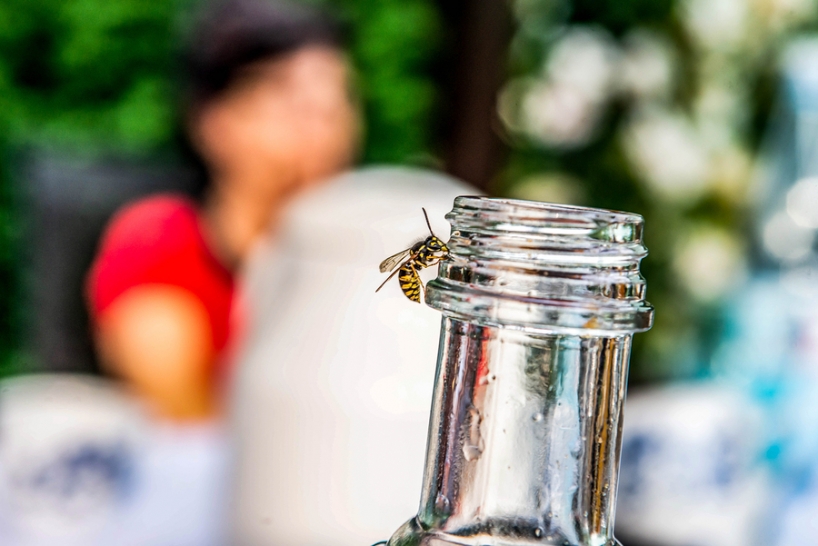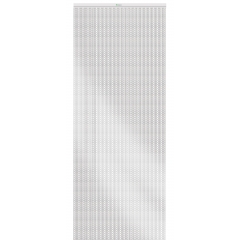
September 8th, 2021 by
Wasps are bad enough in the summer anyway but there is a specific time when wasps are both more prevalent and aggressive. It happens in late summer, and it’s often referred to as ‘wasp season’. If you’re not a fan of wasps (and, let’s face it, who is?) it’s definitely worth doing a few things to prepare for wasp season.
Why does wasp season happen?
 The reason behind wasp season is that late summer is when worker wasps are effectively banished from their hives. This happens after the queen has laid the last of her eggs and her larvae are fully grown. The larvae produce a sugary liquid that the wasps feed on, and with no more larvae, there’s no more food. This renders them homeless and without their usual food source and it forces them to seek food elsewhere.
The reason behind wasp season is that late summer is when worker wasps are effectively banished from their hives. This happens after the queen has laid the last of her eggs and her larvae are fully grown. The larvae produce a sugary liquid that the wasps feed on, and with no more larvae, there’s no more food. This renders them homeless and without their usual food source and it forces them to seek food elsewhere.
They are primarily attracted to sweet foods such as fruit, sweets, chocolate, cakes, sweet drinks, jam, alcohol, and so on, and this is why they are most often found lurking around bins and outdoor food areas, but they will also come into your home if they smell viable targets in there.
Plan your defence
Like most things, it’s really just about having a plan. You can minimise the effects of wasp season by having a strategy that deals with several aspects:
- Attracting as few as possible
- Barriers to prevent them from getting into the home
- Methods to deal with them if they do get in
- Reducing the chances of being stung
- Dealing with stings if they happen
Minimise what attracts them
The first step is to minimise the things that attract them in the first place, ie food. They’re looking for sweet, sugary foods and drinks so be vigilant about clearing up waste and keeping other food out of the way or covered up. Even if you’re having a party in the garden, have covers on food and drink from bottles or cartons where possible. Remember that wasps will often climb into drink cans so be careful when drinking from them.
If you have fruit trees or bushes, clear away any pieces that have fallen to the ground and pick fruit as it ripens as this is a very desirable food source for them. Eating fermenting fruit can make them inebriated and this can render them even more aggressive.
Prevent entry to the home
A fly screen is your best defence against flying insects getting in through open doors. To get the best value from it, hang it in the spring and it will minimise flies, moths, and bees, as well as wasps throughout the warmer months.
Xterminate Silver Chain Curtain Fly Screen
Price: £59.99
Buy Now
Dealing with the ones that do get in
You’re never going to be able to keep them all out, so you need a backup plan for the ones that do get in. An insect-killing spray such as a Protector C spray can not only be applied directly onto wasps but can also be sprayed on surfaces as a preventative measure. Any insects that come into contact with it will be killed so it could deal with them before you even enter the room. It’s also much more pleasant (and less risky) than trying to whack them with a rolled-up magazine!
Reduce the chance of being stung – stay calm
For many people, their instant reaction to being near a wasp is to flap their arms and try to swat it away. This is actually the best way to get yourself stung as it will be perceived as an attack. Stay calm and still. If you have food or drink that they’re trying to get to, it may be best to admit defeat and place it down and move away. It’s definitely more interested in the food than it is in you.
Dealing with stings
Stings do happen and while they can feel very painful in the immediate aftermath, it does soon pass, and you’ll be left with a dull ache. Using antihistamine, either in tablet or cream format, can minimise any allergic reactions and applying a cold compress can help as well. Ice cubes, an ice pack, or even a bag of frozen peas will all work. Keep it clean to prevent it from becoming infected. Obviously, if you have a severe allergy, you should seek medical attention.
Comments
Leave a reply
Your e-mail address will not be published. All fields are required


